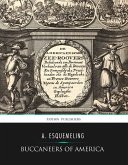The book challenges common perceptions of pirates as mere criminals, instead presenting them as pioneers of workers' rights and democratic organization at sea. Through meticulous analysis of court records, ship logs, and surviving documents, the book examines three crucial aspects of pirate society: formal written articles, unwritten customs, and the evolution of these regulations over time.
One of the most intriguing revelations is how pirate codes emerged as a direct response to the harsh conditions and arbitrary rule aboard merchant and naval vessels, establishing fair resource distribution and democratic decision-making processes that were centuries ahead of their time. The narrative progresses from the historical origins of pirate codes in buccaneer articles to specific examples from famous pirates like Bartholomew Roberts, before concluding with an analysis of their lasting influence on maritime law and organizational behavior.
Written in an accessible yet scholarly style, the book connects these historical practices to modern concepts of workplace democracy and social equality, making it valuable for both academic researchers and general readers interested in maritime history. The comprehensive examination of primary sources and archaeological findings provides a well-rounded understanding of how these codes shaped both pirate society and subsequent maritime traditions.
Dieser Download kann aus rechtlichen Gründen nur mit Rechnungsadresse in A, B, BG, CY, CZ, D, DK, EW, E, FIN, F, GR, H, IRL, I, LT, L, LR, M, NL, PL, P, R, S, SLO, SK ausgeliefert werden.









